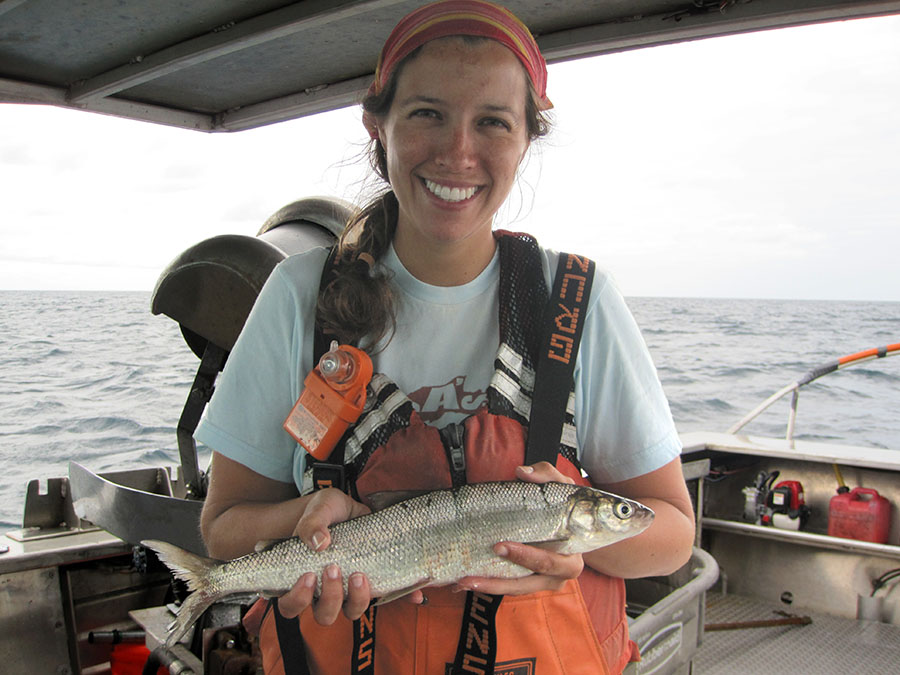Seventeen researchers wrote a commentary piece on the importance of continued investment in Great Lakes research to ensure healthy human communities and ecosystems through improved management.
The stakes are high, they wrote in the article, published in the Journal for Great Lakes Research. They pointed to the facts that the Great Lakes hold nearly 90% of the United State’s surface fresh water and provide drinking water to 28 million people; sustain a $5.1 billion fishery; support 1.3 million jobs and $82 billion in annual wages in the United States; and provide a foundation for industry, tourism, recreation, and culture.
“Research buoys provide critical safety information to commercial and recreational fishing, and data streams to private companies that predict weather. Water level predictions are used by drinking water facilities, power plants, and cities to determine infrastructure investments. The commercial shipping fleet depends on physical observations for navigation,” they wrote. “The ultimate payoff is a highly efficient, responsive, and sustainable system for producing knowledge and tools, which delivers invaluable information and products to stakeholders and taxpayers.”
The authors represent universities, state agencies or environmental nonprofits in Michigan, Wisconsin, Minnesota, New York, and the Canadian province of Ontario. They collaborate as part of the University of Michigan’s Cooperative Institute for Great Lakes Research and the National Oceanic and Atmospheric (NOAA) administration.
See the Detroit News for additional coverage.











